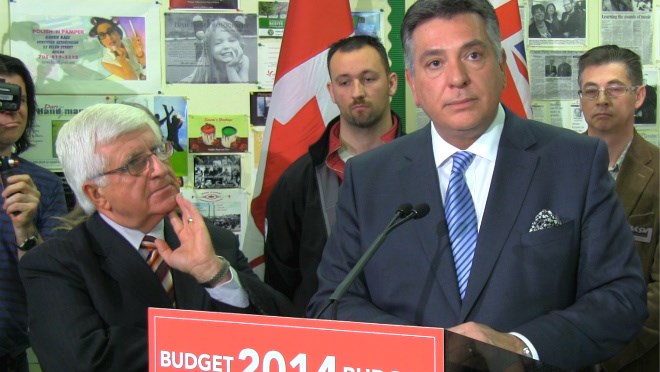The $125 million project would extend Maley Drive and close the highway loop around the city, allowing heavy trucks to connect to Highway 17 without driving through the centre of town. It would also take more than 10,000 cars a day off The Kingsway and Lasalle Boulevard, making those roads far easier to traverse and allowing development of new housing units in the area to proceed without overloading roadways with new traffic.
But the project has been on the book since the early 1980s, and has failed to attract funding from successive governments, even as projected costs have soared. Over the last couple of years, city engineers even split the project into several smaller sections, in hopes of attracting funding, without success.
Matichuk said she's tired of vague promises from the province.
“The gotta put the money on the mahogany,” she said. “And quite frankly, I'm hoping to see that. We keep hearing that they're taking it under advisement, but you can only do that for so long.”
She was happy to see the $1 billion commitment for transportation infrastructure into the stalled Ring of Fire, which was announced last week, as well as progress coming to an agreement with First Nations in the area.
When Cliffs Natural Resources announced last winter it was suspending operations on the massive chromite discovery, plans to build a billion-dollar refinery in Capreol was also suspended. The company cited lack of agreement with First Nations and a lack of progress on infrastructure as key reasons.
“So those are two things that are coming quickly, and hopefully we can get Cliffs back on track and get that smelter built in the city,” Matichuk said.
Thursday's budget is considered crucial for Liberal Premier Kathleen Wynne, who has stayed in power thanks to a budget deal in 2013 with NDP Leader Andrea Horwath. Horwath has said she will wait to read the budget before deciding how to vote, while Progressive Conservative Leader Tim Hudak has vowed to vote against it no matter what.
Sudbury MPP Rick Bartolucci, who's retiring as soon as an election is called, says Maley is also on his budget wish list, along with continuation of four-laning Highway 69 and support for the Learners’ Space at Health Sciences North.
In a release, Bartolucci said opposition parties would do well not to force Ontario into a spring vote.
“In speaking with my constituents, it is clear that no one wants an election,” he said. “Of one thing, I am sure – it is the party that forces the election that will pay the price.”
Much of what's in the budget has already been made public. According to the Canadian Press, a series of official pre-budget announcements and some unofficial leaks have provided a good snapshot of what likely will be in Finance Minister Charles Sousa's fiscal plan. Here's an overview:
From government announcements:
— A new Ontario Retirement Pension Plan, which will require contributions from employers and workers.
— $29 billion over 10 years for transit and transportation infrastructure, including $15 billion for massive public transit expansion in Toronto-Hamilton area.
— Part of the money for transit to be raised by re-directing gas tax revenues and issuing green bonds.
— $2.5 billion over 10 years in corporate grants to secure new investments and jobs.
— $1 billion to develop the Ring of Fire mineral deposit in norther Ontario.
— $269 million over three years to raise wages of licensed child-care workers.
— $280 million over three years to increase pay for personal support workers in the home-care sector.
— $1 million to give grants to seniors to help them stay in their homes longer.
— $50 million a year to help would-be parents pay for in vitro fertilization treatments.
From documents obtained by The Canadian Press from a source outside the government:
— Increased taxes on high income earners and tobacco.
— Removal of some corporate tax credits to help pay for the transit plan.
A four-cent-a-litre hike in the tax on aviation fuel, phased in over four years, to help fund transit and infrastructure projects.
Join Sudbury.com+
- Messages
- Post a Listing
- Your Listings
- Your Profile
- Your Subscriptions
- Your Likes
- Your Business
- Support Local News
- Payment History
Sudbury.com+ members
Already a +member?
Not a +member?
Sign up for a Sudbury.com+ account for instant access to upcoming contests, local offers, auctions and so much more.
